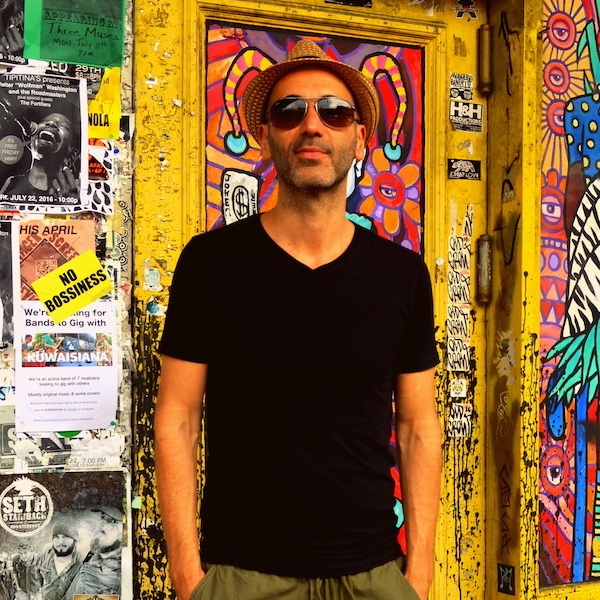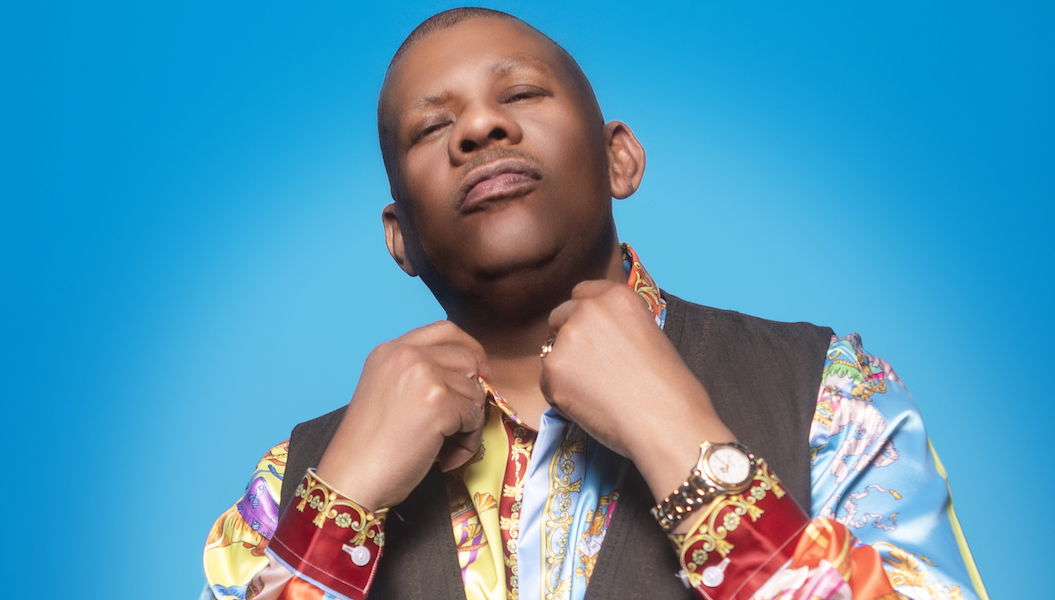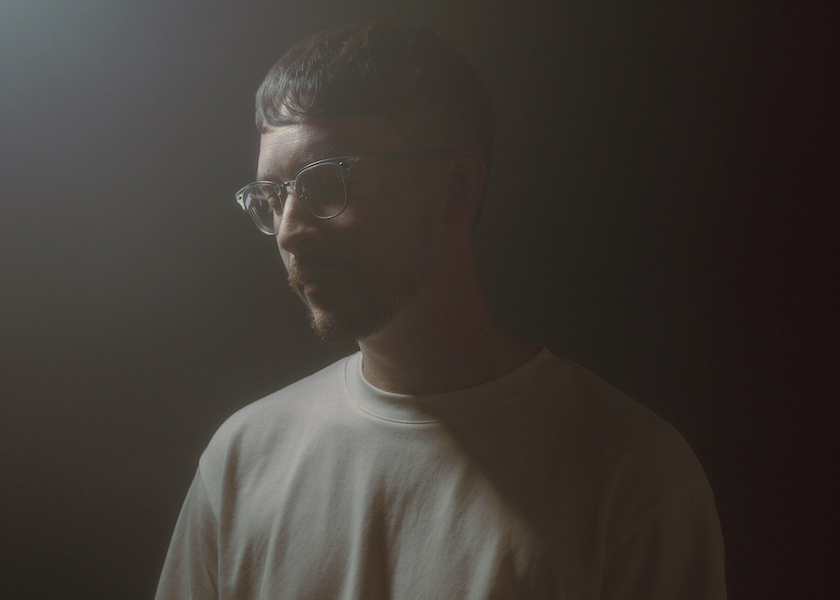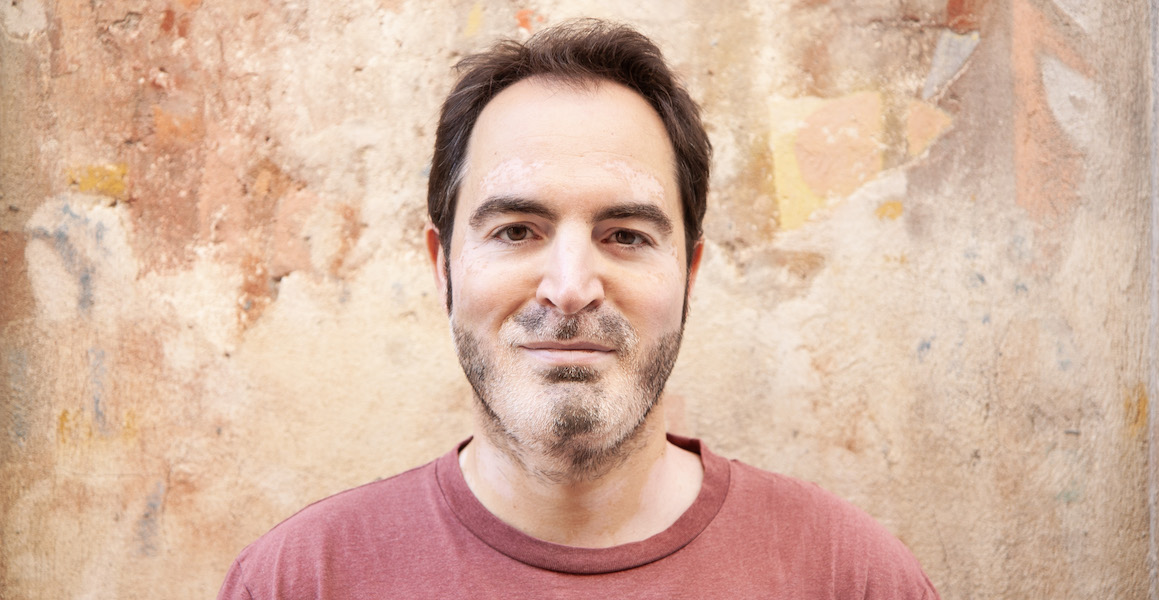Oli Stewart is Casbah 73. DJ, digger, and collector, the artist is about to release a ‘Doing Our Own Thing & To Be Free’ on Madrid’s Lovemonk imprint. The base material is strong here from this talented selector and producer, and it is amped up with a couple of remixes from the mighty Dimitri from Paris. On the week of the release of this highly desirable record, we had a little chat with the charming Casbah 73. Enjoy!
WWD: Hello Casbah 73, Welcome to When We Dip. First off, Where are you based and how long have you been there?
Hi! I am currently living in Madrid, have been for years. Although I was born in the States, I grew up here in Spain, so it seemed like a logical move after living for several years in the UK, mostly in Glasgow. Truth be told, after one cold, rainy winter too many, it suddenly seemed like a no-brainer.
WWD: You spent a lot of time in the UK. What were you doing while you were there musically?
I think it’d be fair to say that I was obsessed with music from a very early age, voraciously so. Nevertheless, moving to the UK was an awakening for me. I discovered soul, funk, disco and black music in general in a very big way. The renewal in interest in this music via the rare groove and jazz dance scenes was just starting to kick off, as were house and techno – the birth of modern club music no less – so it was all happening. I was kept busy DJing as well as expanding my musical knowledge.
WWD: Oli Stewart the digger, when did the obsession begin?
As I was saying, this all happened when I moved to the UK. A whole new world opened up for me, although strictly speaking I guess you could say it had yet to open up properly, and not just for me – we (the music lovers) had no idea what was out there! Seen from today’s perspective, it was a bizarre situation where the best music was largely unknown and unavailable. Radio, shops, press, none of this reflected what was truly going on, so if you wanted to hear the really exciting stuff you needed to explore other avenues. These routes inevitably led to shelling out large wads of cash on records that were often only tantalisingly, fleetingly available. A visiting dealer from Brazil would put down his suitcase, open it and you’d get a glimpse of musical heaven. Then you would have mere moments to weigh up whether to pay exorbitant sums of cash or risk never seeing these records ever again. Sadly, since I wasn’t a millionaire, I felt the only route open to me was to drop everything (including my studies) and become a record dealer. This way I could finance my serious vinyl habit and explore this hitherto unknown world of amazing music. I wanted to be at the forefront, finding new tunes and not be dependent on others to do the work for me.
WWD: Tell us about your personal collection a little.
I guess, objectively, it could be considered too large, in the sense that I very often go for a dig on the shelves and find records that surprise me, as if for the first time (ooh look! Chaka who? This looks promising! etc). Before you conclude that I have a terrible memory, let me state for the record that I have excellent recall for music and records, I was just so intensely focussed on looking for tunes for so many years, hoovering them up in near industrial quantities, that often I would pick things up that I knew were interesting but whose time had not yet arrived and off they’d go onto the shelves. I would say it’s a very comprehensive collection, quite deep in areas like soul, disco, jazz, fusion, latin-jazz, Brazilian, African – all the way through to smaller but no less interesting scenes from South America, Eastern Europe to more esoteric sounds like Library music and of course electronic, house, club music from the last thirty years up to the present day. I’m really just missing two records and then I’m done. Just kidding.
WWD: Where have you been most recently to dig?
I was recently in Kenya, although I have to say that it is not the best country in which to dig for records…and no, I’m not saying that in order to keep it all for myself. Or am I? I do go all over the place in my quest, yes, and I have made incredible finds in many places, whether it’s Mexico, Argentina, Belgium, or Thailand, but I firmly believe the most exciting finds are in the USA, even today.
There’s times when you find that one impossible record while wandering around a yard sale you just happened upon, other times you do your homework and it pays off, like when I tracked down an artist while pursuing a license for a compilation I put together some years ago and he happened to still have most of the stock for an album which was never officially released (yes, I bought them all). However, you’ve just reminded me of a time I had a date with my girlfriend, we were just getting to know each other at the time. On my way to the pub, I was slightly early (so keen!) so I nipped into a charity shop in order to keep out of the rain and kill a few minutes. Through sheer dumb luck I happened upon a mint copy of Penny Goodwin “Portrait Of A Gemini”, which, for those that don’t know, is a ridiculously rare LP that has no business lying around in UK charity shops for a pound. I spent the rest of the evening alternating between trying to come across like a balanced, normal human being and panicking that I’d misplaced my record bag.
WWD: How do you sell your finds. Is there a network that you service?
I mostly sell direct, via people’s wants lists and personal visits. The best thing is to get in touch: [email protected] It’s all word of mouth. The advantage of this is that you get a selection that hasn’t been picked over on the internet, something I find tends to make things less exciting or interesting these days for record buyers. Yes, it would be easier to just list things on the net, but the experience wouldn’t be the same.
WWD: What’s one of the most interesting records you are holding right now?
Funnily enough, I’ve never really been into the whole collectable/artefact aspect of records. Sure, it’s awesome to own so many rarities but it’s the music contained within those grooves that I was interested in first and foremost, and still am. So I’m not sure what qualifies as an important record, but as a curiosity, and to give you an idea of how I operate, I have a 7” single that was released only in Mexico in the late 70s. To say it is obscure is an understatement. I first came across it while record buying in Mexico, perhaps twenty years ago and I have been sneakily stockpiling it ever since. I knew at the time that nobody would be interested, but now… now it’s time has definitely come. There isn’t an audio link anywhere on the net for me to share, but it has a mad, synth-heavy raw disco sound (think Space Grapes, for example), almost proto-house and I just recently sold a couple of copies to some very heavy hitter DJs – I imagine that I’ll never find another copy ever again.
WWD: Casbah 73 the producer. When did you first step into the studio?
Even though I dabbled in music from a very early age, learning to play guitar, forming terrible bands, even going so far as to write music reviews as a teenager so I could get to meet and interview some of my musical heroes, the hardest decision I made when I moved to the UK was to not make music and concentrate instead on furthering my musical education via digging for vinyl. There was just so much to learn, so I held back and didn’t start producing music until I moved back to Spain. How disciplined is that? I remember DJ Spinna was over visiting, buying records and when he saw I had just purchased a mixing desk he said: yeah, I knew this was coming, ha ha! The very first record I released was called ‘The Way I Am’, it was released by HiTop Records and this year is its 20th anniversary! I still get occasional messages to this day from DJs who play it out and it makes me very happy to know that it has stood the test of time, because my god, it drove me crazy when recording, as well as my friend Rubén Kielmansegge, who helped me produce it. It was very well received and this gave me the confidence to carry on making music. We even received a request from a US Presidential candidate to use the track as the theme song for their political rallies. Sadly though, he didn’t go the distance. There is no way his most excellent choice of this song had any influence on his political demise.
WWD: Tell us about what was your important release in your eyes?
It depends, I got a real sense of achievement from putting out two albums in those early days, but I guess that right now I feel that recording “Love Saves The Day” was a significant move because it sent me off in a whole new musical direction, making songwriting my main focus (as opposed to the concept of producing via computers) and recording music with live musicians. It opened up a whole wide world for me, one that I’m still learning and that I totally love. The fact that Defected/Glitterbox bought the rights and re-released this record brought my music to a wider audience and gave me renewed confidence in following this particular path.
WWD: Is there a record that went under the radar and that we should check?
Well, since it was recorded by my more electronic alter ego – Freamon – and it was a vinyl-only release on Turbocapitalism Records, I would urge you to have a listen to ‘Hot Damn!’
It’s the kind of organic, loose and funky house that I favour, it even features a free jazz saxophone solo (of course!). Having said that, since the phrase “under the radar” is all too often applied to my music we could cut to the chase and just say: anything!
WWD: You look to the past a lot with your sound. Who do you think is making great music at the moment?
It’s true that I wear my influences on my sleeve, but I don’t exactly know if that is looking to the past so much, it’s just the idiom I choose to express myself in. Everyone has their influences, and if you think about it, sampling, techno, these things are all well over thirty years old. My point is that everyone is necessarily looking to the past in a way, the trick is what you do with it. I happen to really dislike retro styles but love artists who you can feel know their roots and who build upon this. So, with that in mind, I really like what Makaya McCraven is doing right now. It’s so tough to come up with something fresh in jazz and he’s a good example of someone who does this brilliantly. Cleo Sol, love her voice, her brilliant songs and, of course, her work with Sault. The guys from Jungle have some cool tracks, as do artists like James Tillman, Yasmin Lacey. Love what Str4ta are doing, producers such as Art Of Tones, East Coast Love Affair, Session Victim, Dam Swindle strike me as sounding fresh, for example. Ask me tomorrow and I’ll give you ten completely different names, I’m not very good at condensing my musical interests into lists and I like to keep my mind as open as possible to everything.
WWD: How did you hook up with Lovemonk originally?
After HiTop Records closed (I released a number of 12”s with them, plus a compilation and two albums), I was experimenting with a different sound, something closer to organic house and I sent Borja (Lovemonk label head) some demos. He’s the reason I started to move away from sampling and on this debut release (“I’m Feeling Lucky” b/w “Main Bitch”) I feature a lot of synths, plus I hooked up with an old friend from Glasgow, Andy Docherty, who provided the vocals for “I’m Feeling Lucky”. It wasn’t my first time working with singers, but Borja’s extensive connections and his insistence that I give it a try were a big reason for my musical transition.
WWD: Tell us about the history of Doing Our Own Thing.
It came into being after I finished recording To Be Free, which was a relatively expensive track to produce, what with the vocals, all the musicians and a live string section, no less. Anyway, there was a little Rhodes section from those sessions that kept playing over in my mind and eventually it developed into a full blown, separate song. I like to work fast and keep things rough during the conception of a track. This is then followed by an extensive period of back and forth with Borja during the development of the record, meaning he usually wins and I make the necessary changes. He was initially very excited when he heard the early versions of this new track, less so when I informed him that it required a horn section in order to finish the track. So, off I went, all the way to Toledo to record with some excellent horn players in a makeshift studio set up in a local school classroom, which was possibly Borja’s revenge for all this extravagance. As luck would have it, the equipment didn’t work so back we came, to Madrid and an actual recording studio where all the solos and horn parts were laid down. The moral of the story is: sometimes you must sabotage equipment in order to get what you want.
WWD: So Dimitri From Paris was a fan. I imagine you are thrilled with his result.
Well, I don’t know if there’s a theme developing here, but this was, once again, all down to Borja. We’d recently noticed that there was still significant interest in this track, from influential people like Kenny Dope, for example. The stock for the 12” sold out so B came up with the idea that a remix/edit would be an interesting move and, although it felt like a long shot, that Dimitri would be the perfect man for the job. He was right, and although it was tricky, he managed to convince him to give it a go. Yes, I am absolutely thrilled with the results! I love the 7” part 1, part 2 concept. I like hearing all those ideas condensed into shorter, more direct versions (the original is nearly ten minutes long). Since the track shares some tonalities with To Be Free, it was my suggestion that the strings be considered an option (they aren’t in the original version of Doing Our Own Thing) and I’m thrilled that Dimitri agreed and incorporated them into his mixes. I love the sound he coaxed out of the recordings. I’m pretty damn happy, if you hadn’t already noticed!
WWD: Your remixes of To Be Free, the tracks have been around for a while right?
I think I need to be restrained and tied down sometimes, I have a tendency to go straight back and produce new versions of finished tracks of mine. So, imagine what happens when I’m told that there’s going to be a new release and do I have anything to contribute (!). The fact is that there was a wealth of material recorded at the time of the sessions, including whole takes from backing vocalists that didn’t get used at all and a great sax solo from a different player who wasn’t able to attend the original sessions… things like that. So, of course I was going to be doing some new versions, right? I was also seduced by the idea of finally being able to combine parts from both songs and bring the vocals, strings and horns together on one version. Two, in this case. I’ve just received some of the advance feedback and I’m so happy to see that these versions are also being extremely well received. My feeling is they all have something to offer.
WWD: What else have you got cooking Oli?
Well, at this exact moment in time I have quite a number of tracks that are nearing completion – I’m on a roll! – I’m considering putting together an album, although I haven’t quite decided whether it’s the right time. That aside, I do have some more releases planned for this year and although the music is done and slated for release in the very near future, I haven’t actually signed any contracts yet so I’d rather wait before announcing anything. So yes, that’s right, officially, I have nothing to announce, ha ha!
WWD: When you are not making excellent disco records, how do you like to kick back?
When not making music, listening to music, playing music out, buying/selling records I like to go to concerts or go out dancing to – you guessed it – more music. I do like to go running, cycling, and skiing is a favourite sport of mine (unfortunately, I’m recovering from a ski-related knee injury so no more for a while). I grow insanely hot chili peppers even though I find it impossible to convince delicate Spanish taste buds to try them. I like to travel but I also love to explore this beautiful city, wander around, eat out. Truth be told, the hours spent in the studio limits how much I get done, but it’s important to have some balance in your life, so I try.
WWD: Thanks for your time!
Thank You 🙂
CASBAH 73: Facebook // SoundCloud






